- Home
- Chris Ryan
Ultimate Weapon Page 2
Ultimate Weapon Read online
Page 2
Next, he’d made his way by foot around the perimeter of the city, until he hit one of the roads running into its north-west corner. The suspected weapons laboratory was two miles from the dropping-off point, located at the centre of an industrial suburb. It was a drab, prefabricated block that could have passed for an out-of-town retail shed back in Britain. The one advantage of Baghdad, Jed had reflected on the journey, was that the whole population was so terrified, nobody ever came out at night. It also reminded Jed of some of the care homes he’d spent the better part of his childhood in while his dad made regular trips to the local nick. Once you got out, you didn’t ever want to go back in again.
The mission had sounded straightforward enough. Go in close to the lab, and lie up somewhere you can’t be seen. Then, using a high-powered digital camera, take as many pictures as you can of the facility. ‘Just make sure they’re nice and clear,’ Laura had told him as he’d left for Kuwait.
Easy for you to say, Jed could recall thinking as he lay behind a low wall, looking across at the facility through his night-vision goggles. A lot harder to do when you’re here. Maybe they’d like me to get a couple of palm trees and a nice sunset into the snaps as well. Make it look like the Baghdad tourist brochure.
He took a series of pictures of the perimeter of the facility, but that told you nothing. A grey concrete wall, that’s all. Above it there were several towers, something like a chemical plant, but even though Jed had studied engineering at Cambridge before joining the Paras, he couldn’t recognise them. Not at this distance, anyway. He took some more pictures, then tried to get closer. The gates were to his left. He inched forward, taking up a position in the doorway of a boarded-up shop about thirty yards from the entrance. It was two in the morning, and the city was asleep. He could see a thin whisper of smoke escaping from one of the high chimneys, but that aside, the plant looked dead. The gates were secured with thick steel locks, and there were no guards on duty: Jed could only assume there were plenty inside, and he wasn’t about to risk finding out. Not on a solo mission.
By the time dawn rolled around, his legs were stiff and freezing: in February, the night-time temperatures in Baghdad dropped to zero. As the first light of morning started to break over the distant horizon, a truck pulled up at the entrance. It was a battered old Toyota, its back covered with thick black plastic sheeting. The gates swung open. Inside, Jed could see six guards hurrying forward, ushering the truck into the compound, then swinging the doors firmly shut after the truck drove inside. He managed to take a series of snaps with the digital camera, a dozen in total. By then the street had fallen quiet again, and a boy was looking at him. He was twenty yards away. Jed was dressed in a grubby white tunic and blue trousers. His skin was tanned, and with black hair there was nothing to distinguish him from an Iraqi. Still, the boy was staring right at him. He was no more than six, with huge brown eyes and a hungry look to him. There was no sign of his mother.
Jed scowled, then looked away. He could see the boy from the corner of his eye. Then he started walking towards him. He was saying something in Arabic, but Jed couldn’t understand it: back in Hereford they’d been running elementary Arabic classes – with an Iraqi instructor giving them the right dialect – for the last six months, but most of the lads hadn’t signed up for them. The only Arabic I need to understand is the rattle of an AK-47, as one of his mates had put it. It’s not as if we’re planning on talking to the buggers. Jed paused, wishing he understood the language. Then he waved at the boy with his arms. Go, he mouthed silently. Bloody well piss off.
The boy pointed at Jed’s camera. He was just a dozen yards from him now. Jed was thinking fast. Any closer, the kid was going to realise he was a foreigner. Any kind of commotion right now and half the Republican Guard was going to be steaming towards him. His orders were ringing in his ears. ‘Any trouble, get the hell out of there. The last thing we need is for an SAS guy to get picked up in Baghdad while we’re still trying to get the bloody surrender monkeys at the UN to sign up to the war.’
In the end, there had been no choice but to evacuate. He had fifty snaps of the plant already on the compact digital camera, and that meant the mission was complete. Retracing his steps through the dark, quiet city, within an hour he’d been back at the drop-off point, collected by a chopper and back in Kuwait. In less than twelve hours, he was on home soil again. The pictures didn’t show much, but they were all he could get in the circumstances. If they didn’t like them, they’d just have to go and get their own.
‘Can you tell us exactly what you saw, Jed?’ said David Wragg. He coughed nervously. ‘As you know, we have to examine every piece of evidence coming out of Iraq with minute care. It would be bloody embarrassing if we ended up invading the place, and then found out they didn’t have anything more dangerous than a couple of pea-shooters in their locker room.’
He was a thin man, with greying hair and green eyes that bore down into you as you spoke, like a drill cutting into rock. He was smartly but casually dressed: he wore chinos and an open-necked shirt, but still had cufflinks and black lace-up brogues. The Firm was edging its way into the dress-down era, noted Jed, but none of the senior guys looked really comfortable with it. Give them a chance, and they’d be back in their three-pieces and bowler hats.
‘It’s all in the pictures,’ said Jed.
‘Yes,’ said Wragg carefully. ‘The trouble is, the pictures don’t tell us that much.’
Muir leant forwards on the table. ‘We’re looking for what our friends in the porno business call a come shot, laddie,’ he said. ‘A nice big picture of Saddam cuddling up to a missile with the word anthrax written on the side.’
Jed noticed Wragg leaning into Muir’s ear, and whispering something. Cool it, maybe. If so, it was good advice. Any more lip from the Scotsman and he was going to get that bright red nose smacked.
‘Well, this is all we have. Like it or lump it.’
Laura smiled at him icily. ‘We all have to understand that there is a lot of pressure to come up with some convincing intelligence about Iraq’s WMD and come up with it quickly. All our sources tell us that this is a very important facility. Whatever is going on in that lab, it matters a lot to the Iraqis. That’s why we sent you there.’
‘I got the best pictures I could, short of risking capture,’ said Jed coldly. ‘If you wanted me to go in, those should have been my orders.’
‘We appreciate that,’ said Wragg quickly. ‘And we appreciate your bravery. We just want to get a fuller description, that’s all.’
From the corner of his eye, Jed noticed that Muir was doodling a picture of a naked woman, with outsized breasts and a tiny miniskirt. Christ, he thought, when did they put this psycho in charge of the country?
‘What did the building look like?’ pressed Wragg.
‘Nothing special,’ answered Jed. ‘A carpet factory. Could be making rugs from the looks of the place.’
‘And special defences?’
‘Just a high perimeter fence, and thick steel gates.’
‘No guards?’
Jed shook his head. ‘Only on the inside.’
‘Searchlights?’ asked Laura.
‘Two on either side of the compound,’ said Jed. ‘But fixed. They weren’t scanning the area. They might have been built to, but they weren’t that night.’
‘Electronic surveillance?’
‘Not that I could see.’
‘What did it smell like?’ said Weston.
Jed paused. That was a good question. It smelt like fear, if he was being honest. His own terror sweating off him as he stood next to the plant, wondering if he was about to spend the next few months being tortured to death by the Iraqis. ‘Just dust, really,’ he replied. ‘Concrete, tarmac. Tossed-out rubbish and dog piss. The same sort of smell you might get on any industrial estate in this country on a hot day.’
‘No fruity smells?’ said Weston.
‘Like what?’
‘Burnt almonds, dried orange
s, anything like that,’ said Weston. ‘Just any kind of memorable smell.’
Jed shook his head. Weston was a short, plump man, with a greying beard that looked like it could use a trim. He’d be more at home at a real-ale convention than the offices of the Firm. Still, he knew more about chemical and biological weapons than any man in the country. If it could come out of a test tube and kill you, then Weston was the man to spot it.
‘Nothing like that.’
‘How about lights?’ said Miles Frith. ‘What kind of light was it giving off ?’
‘It was dark.’
‘I know,’ said Frith. ‘But any kind of glow.’
Jed shook his head.
‘Pipes?’
‘What do you mean?’
‘Any kind of thick pipe running into the place?’ Frith was younger than the other men, no more than thirty, Jed thought. He wore half-moon glasses that made him look older, and a short-sleeved blue shirt. His voice was thin and whiny, like a cat being prodded with a hot stick, but his manner was firm and decisive. Weston took him along to every meeting he attended, but no one else could understand why he was there.
Jed closed his eyes. In his mind, he recalled images of the pictures he’d taken. He’d looked at the building for hours, committing it to his memory, the way a photograph is committed to a roll of film. He could see the drab concrete wall that surrounded the place, and the cylinders poking above them. And then to the right he could see a pipe.
‘On the right of the plant,’ he replied.
‘How thick?’
‘Maybe a foot in diameter.’
‘Oil?’
Jed shook his head. Oil pipes usually came in a standard size, and they were smaller than that. And industrial plants didn’t need raw crude. ‘Water,’ he said. ‘I think it was a water pipe.’
‘Just into the plant.’
Jed nodded. ‘There were no pipes running off it, so yes. The plant must have had its own water supply.’
Weston looked suddenly interested. ‘What about the road leading into the place? Was it reinforced in any way?’
Jed nodded again. ‘There was thick tarmac on the road leading up into it. A lot thicker than any of the surrounding roads.’
Weston looked up at the picture Jed had taken of the building. He was scrutinising it, the way an angler would scrutinise the fish on the end of his rod, looking at it from every angle to judge whether he’d landed a prize catch. From the look on his face, Jed judged this one wasn’t about to be tossed back into the water.
‘So what have we got here, ladies?’ snapped Muir. ‘I can’t piss around all day talking to you fucking pansy boys. Is it WMD or not? Have we got the evidence?’
Weston stood up. After a brief moment of hesitation, Frith stood up as well. ‘What we are looking at here, I believe, is not WMD. At least not in the conventional sense.’ He turned and walked out of the room. Frith followed, shutting the door softly behind him.
‘I think that brings the meeting to a close,’ said Wragg quickly. ‘Thank you, gentlemen.’
Muir snorted, collecting his pad from the desk. ‘Next time, try to get us the come shot, boy,’ he said, looking menacingly across at Jed. ‘Missiles, that’s what we want. Vats of fucking rat poison, marked “For Delivery to London”. Not this overgrown Meccano bollocks.’
He leant over, so that Jed could smell the stale after-shave on his skin. ‘And you should shave that stupid beard off, sonny,’ he sneered. ‘You look like a bloody tramp.’
Jed was about to speak, but once again he could feel Laura’s hand on his wrist, restraining him. There was something about the touch of her skin on his that he liked: smooth, reassuring and firm. The words stalled in his throat. Just as well, he reflected, as he stood up and started to walk across the room. Even a couple of years in a social services care home, then a couple more as a squaddie, didn’t prepare you for a swearing contest with that tosser.
‘What the hell was that all about?’ said Jed, turning round to look at Laura as they left the room.
They were standing in the corridor on the second floor of the Firm’s headquarters. A couple of men scurried past, holding bottles of mineral water and thick-looking bundles of paper. Jed could feel the tension in the air: it was the same mixture of anticipation, tension and excitement you got at the Regiment the night before a big scrap was about to blow up.
Laura looked at him, a dazzling smile suddenly flashing across her full red lips. Her left hand reached up to play with the single pearl earring.
‘That was something that could make my career,’ she replied.
TWO
Nick Scott glanced left and right as he walked through the green channel on his way out of Heathrow Terminal 3. A couple of customs officers looked at him, and Nick could tell they were weighing up the hassle of stopping and searching him. A tall, tanned man, with weather-beaten skin and a black rucksack slung over his shoulder, recently arrived from North Africa, I probably fit all the profiles for a search, he thought. But it’s almost lunchtime. They can’t be arsed.
His flight from Algeria had touched down an hour earlier, but it had taken almost forty minutes for the baggage to turn up on the carousel. It was already ten past one. Nick walked across the crowded terminal, sat down at the coffee bar, and ordered himself a tall latte and a cheese-and-ham sandwich. He stared into the busy mass of people, already wondering how he was going to fill the rest of the month until his next shift on the rigs started up again. I get back to Britain every other month, with my salary – about eight grand – sitting in my bank account, and I still don’t know what the hell to do with myself.
He fished his Nokia from his pocket, and glanced at the screen. No messages. No texts. Nothing.
He took a bite on the sandwich, relieved to have some decent food again. For the last five years, he’d been working as a security consultant on the oil rigs off the Algerian coast. Four weeks on, then four weeks off, with your flights and all your meals paid for. It was OK work for a man who had just turned fifty, and he knew he was lucky to have it: there were plenty of former Regiment blokes having to run much greater risks for a lot less money. He liked the sea, and the shifting crew of Egyptians, Moroccans, Somalis and Algerians who manned the rigs made OK company so long as you didn’t mind the constant smoking, the smell of couscous, or their insatiable demand for porno DVDs featuring German blondes. Being at sea meant you couldn’t spend any cash, and it kept you away from the bottle: most of the rig workers were Muslims and didn’t drink. But it was hot, dull work, and by the last week of every tour, he was just counting the days until he could get back to Britain again.
Until he could see Sarah.
Every man needs something to live for, he’d reflected as the plane had touched down on the runway. Something to pull him through the days. A wife. A job. A dream. For me it’s my daughter. The only thing I ever got right.
He glanced at the Nokia again. He’d sent her a text yesterday afternoon, but they often took a long time to get through – the Algerian landlines hardly worked at all, and the mobiles weren’t much better. Still, the routine was well established. Every time he got back from the rigs, usually with a few grand in his pocket, he’d get the train straight up to Cambridge to see her. They’d go out and have dinner, and share a bottle of wine or two. These days, Nick only allowed himself a drink every couple of months. Any more than that, he knew he’d be in trouble again. And then who would look after Sarah?
The screen was blank.
Funny, thought Nick.
Like most twenty-somethings, Sarah was a text addict. Send her a message, and you’d usually get a reply within minutes. He jabbed at the tiny keyboard, and double-checked the inbox. Nothing. Next he looked up ‘Missed Calls’. Nothing. Christ, I’m a miserable bastard. A month out of the country, and in all that time I haven’t had a single call.
There were only three numbers stored on the phone. His own, the company that supplied the muscle to the rigs and Sarah’s. He flicked
on to Sarah’s number, then pressed the green dial button. It was picked up immediately. ‘Hi, this is Sarah,’ said the familiar voice. ‘I can’t take the call right now, but leave a message and I’ll get back to you.’
‘It’s Dad,’ he said gruffly. ‘I’m at Heathrow. Give me a ring when you get the message.’
Nick folded the phone back into his pocket. He took another bite of the sandwich, but his appetite seemed to have deserted him. Slinging his rucksack over his back, he started walking towards the tube. He stopped to buy a paper, glancing down at the headline as he queued to pay. WAR WITH IRAQ DRAWS CLOSER ran the headline. Nick put the paper back, and grabbed one of the motoring magazines instead. They can go to bloody war with the Iraqis again, if they want to, he thought. But I don’t want any part of it. Don’t even want to read about it in the paper.
The Heathrow Express into central London took just fifteen minutes. Along the way, Nick had some time to think. Sarah had been living in Cambridge for six years now. After Mary died, he’d fallen apart faster than a self-assembly bookshelf. The drink had turned him into a shambles. The ski school had only lasted another few months before they ran out of money: nobody wanted an instructor who swayed down the side of the mountain reeking of bourbon and gin. Back home in Hereford, there had been no work, and no prospects. It was a miracle Sarah managed to look after herself, but after one of her teachers became suspicious, and called in the social services, she was taken into care for a while. After three weeks of heavy drinking, Nick had realised that unless he straightened up his life, he was never going to get his daughter back. Get close to them when they’re young, he could remember someone once telling him. That’s the only time they really need you.
Social services returned her after six months, and Nick had straightened himself out. He got a job, first bodyguarding, then on the rigs. They muddled through, although the damage was plain to see. Sarah was always brilliant academically – top As at schools, then a first in natural sciences at Cambridge – but emotionally she was wild. As a teenager, she disappeared on weekend raves. Nick was certain she slept with too many boys, and took too many drugs, but she’d never talk to him about it. When she got home, she’d always go straight back to her studies. Intense work, followed by intense R&R, Nick sometimes reflected. She’d have fitted right into the Regiment.

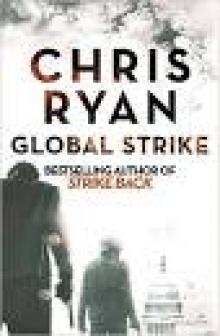 Global Strike
Global Strike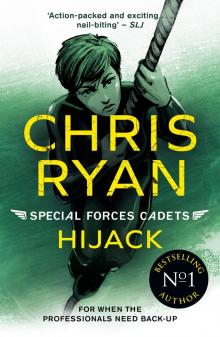 Hijack
Hijack Special Forces Cadets 2
Special Forces Cadets 2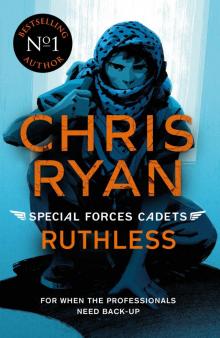 Ruthless
Ruthless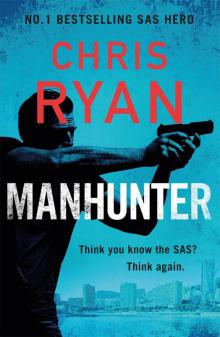 Manhunter
Manhunter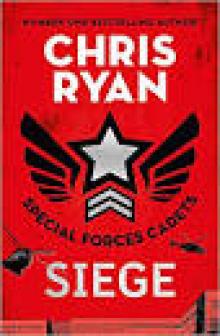 Special Forces Cadets 1
Special Forces Cadets 1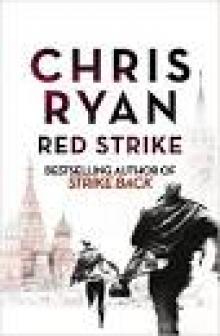 Red Strike
Red Strike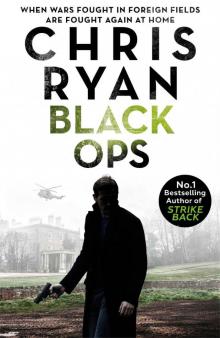 Black Ops
Black Ops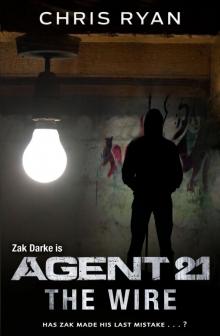 Agent 21: The Wire
Agent 21: The Wire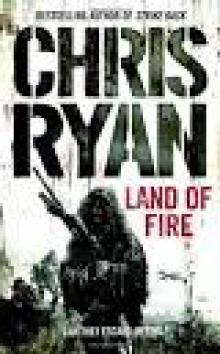 Land of Fire
Land of Fire Alpha Force: Fault Line
Alpha Force: Fault Line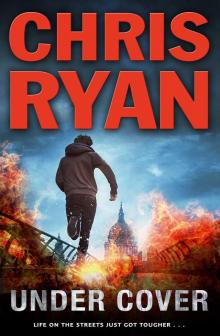 Under Cover (Agent 21)
Under Cover (Agent 21)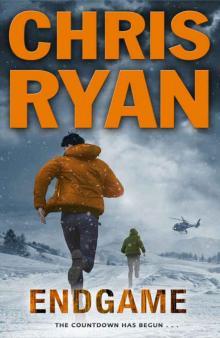 Endgame (Agent 21)
Endgame (Agent 21) Red Centre
Red Centre Blackout
Blackout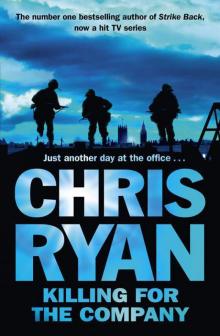 Killing for the Company
Killing for the Company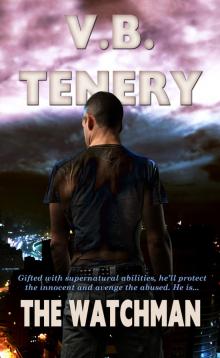 The Watchman
The Watchman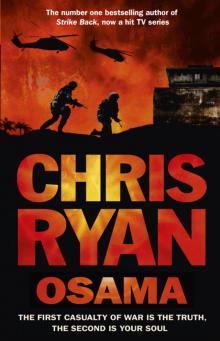 Osama
Osama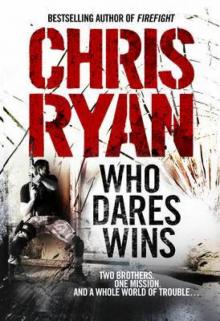 Who Dares Wins
Who Dares Wins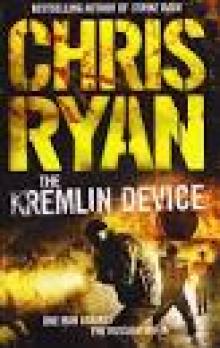 The Kremlin Device
The Kremlin Device Hunter Killer
Hunter Killer Alpha Force: Untouchable
Alpha Force: Untouchable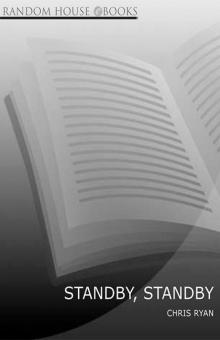 Stand By Stand By
Stand By Stand By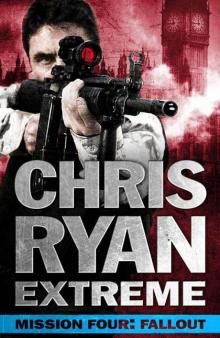 Chris Ryan Extreme: Hard Target: Mission Four: Fallout
Chris Ryan Extreme: Hard Target: Mission Four: Fallout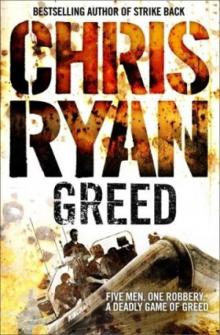 Greed mb-1
Greed mb-1 Alpha Force: Desert Pursuit
Alpha Force: Desert Pursuit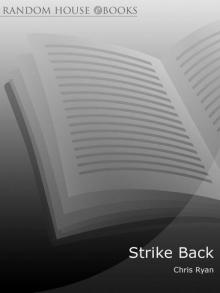 Strike Back
Strike Back Greed
Greed The Bay Bulls Standoff
The Bay Bulls Standoff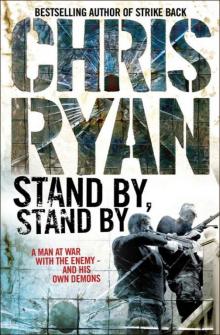 Stand By, Stand By gs-1
Stand By, Stand By gs-1 Outbreak
Outbreak Hunted
Hunted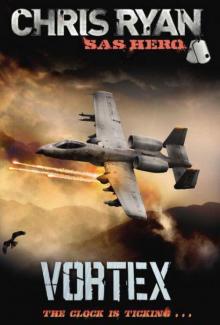 Vortex cr-4
Vortex cr-4 Rat-Catcher
Rat-Catcher Vortex
Vortex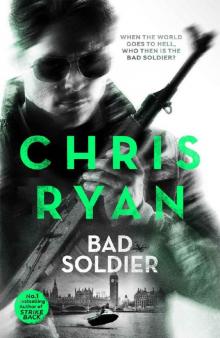 Bad Soldier
Bad Soldier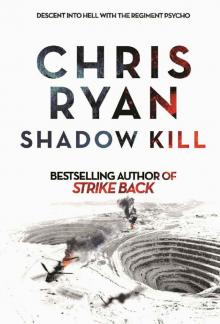 Shadow Kill: A Strikeback Novel
Shadow Kill: A Strikeback Novel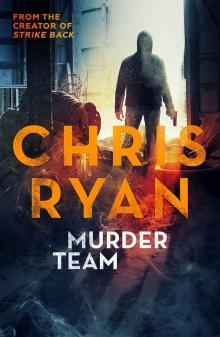 Murder Team (Kindle Single)
Murder Team (Kindle Single) One Good Turn
One Good Turn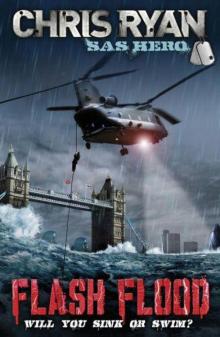 Flash Flood cr-1
Flash Flood cr-1 Night Strike
Night Strike Wildfire
Wildfire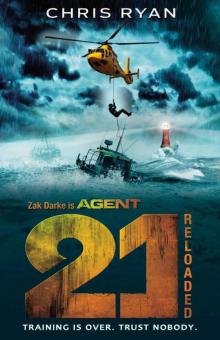 Agent 21: Reloaded: Book 2
Agent 21: Reloaded: Book 2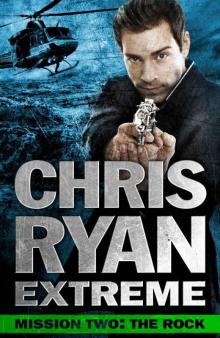 Chris Ryan Extreme: Hard Target: Mission Two: The Rock
Chris Ryan Extreme: Hard Target: Mission Two: The Rock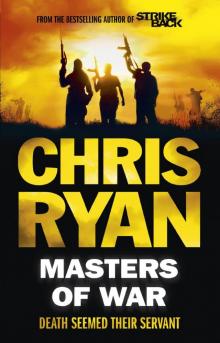 Masters of War
Masters of War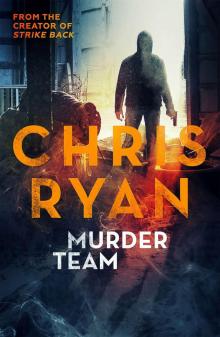 Murder Team
Murder Team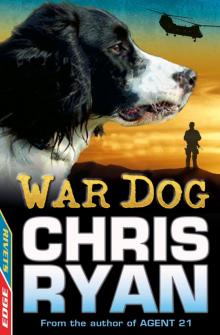 War Dog
War Dog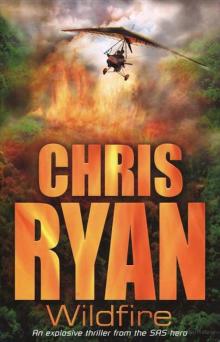 Wildfire cr-2
Wildfire cr-2 Survival
Survival The One That Got Away - Junior edition
The One That Got Away - Junior edition The Hit List
The Hit List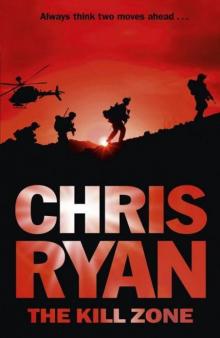 The Kill Zone
The Kill Zone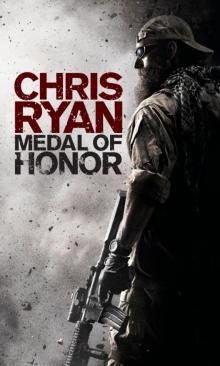 Medal of Honor
Medal of Honor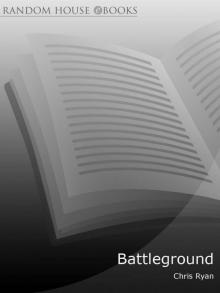 Battleground
Battleground Twister
Twister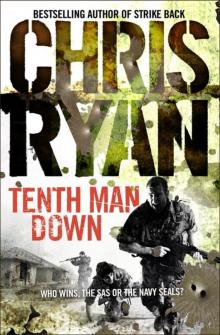 Tenth Man Down gs-4
Tenth Man Down gs-4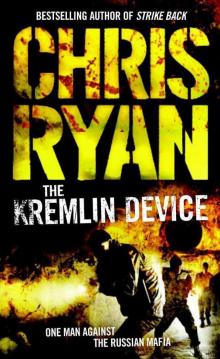 The Kremlin Device gs-3
The Kremlin Device gs-3 Hostage
Hostage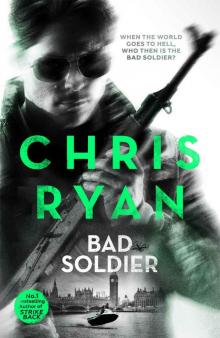 Bad Soldier: Danny Black Thriller 4
Bad Soldier: Danny Black Thriller 4 Alpha Force: Blood Money
Alpha Force: Blood Money Firefight
Firefight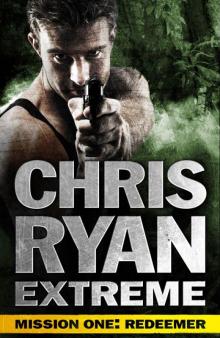 Chris Ryan Extreme: Hard Target: Mission One: Redeemer
Chris Ryan Extreme: Hard Target: Mission One: Redeemer Hit List
Hit List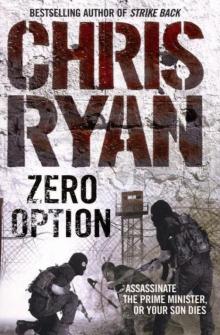 Zero Option gs-2
Zero Option gs-2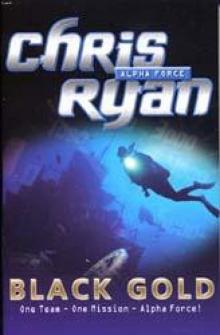 Black Gold
Black Gold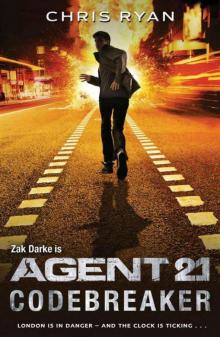 Agent 21: Codebreaker: Book 3
Agent 21: Codebreaker: Book 3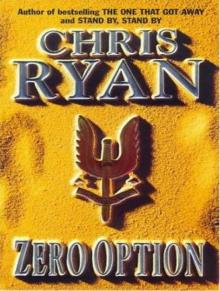 Zero Option
Zero Option Ultimate Weapon
Ultimate Weapon Tenth Man Down
Tenth Man Down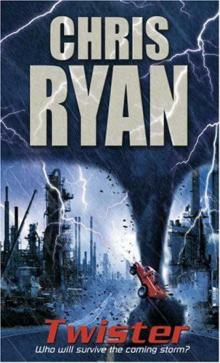 Twister cr-5
Twister cr-5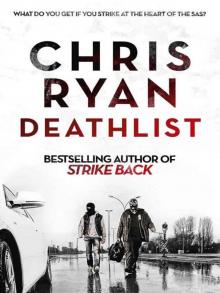 Deathlist
Deathlist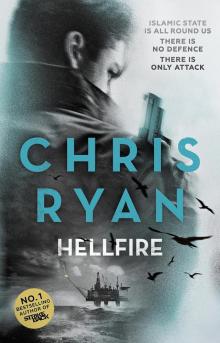 Hellfire
Hellfire Flash Flood
Flash Flood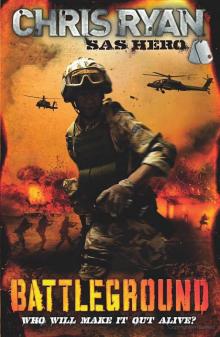 Battleground cr-6
Battleground cr-6 The Increment
The Increment